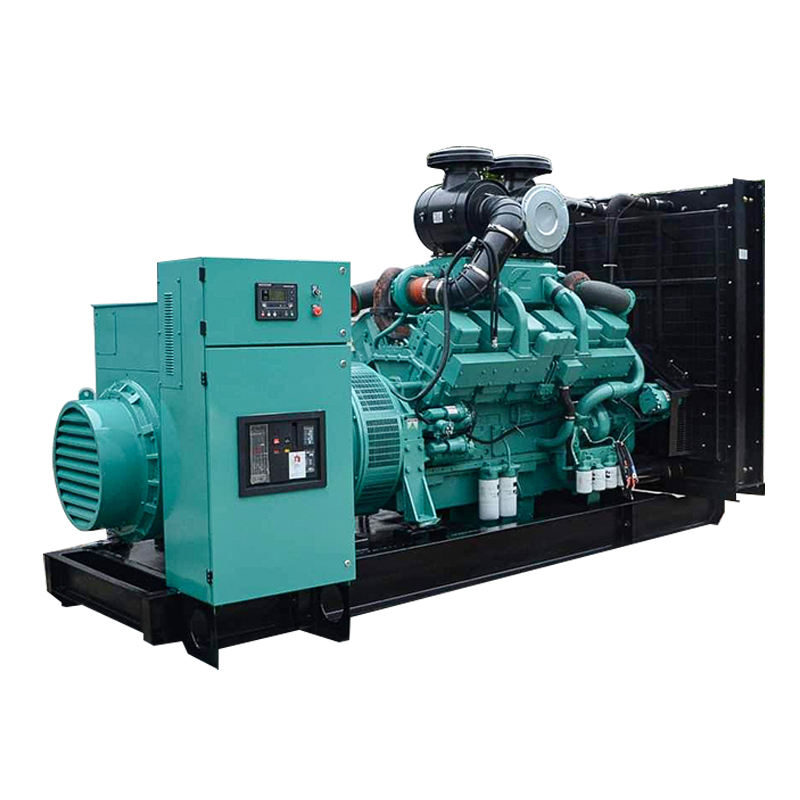
A motor generator set, often abbreviated as MG set, is a device consisting of a motor and a generator mechanically coupled together. The motor converts electrical energy into mechanical energy, which then drives the generator to produce electrical energy. While this might seem like a roundabout way to handle electricity, MG sets serve a crucial purpose in various applications where direct power conversion isn't feasible or desirable. They effectively bridge the gap between incompatible electrical systems, providing a reliable power source for specialized equipment and sensitive loads. So, what makes this seemingly simple combination of motor and generator so valuable? Let's delve deeper into the specifics.
How Does a Motor Generator Set Work?
The fundamental principle behind a motor generator set lies in the interplay between the motor and the generator. The motor, connected to a primary power source, rotates a shaft. This rotational energy is then transferred to the generator, which in turn converts the mechanical energy back into electrical energy. This seemingly simple process allows for modifications in voltage, frequency, and phase of the electrical output, making it suitable for specific applications. For example, a motor generator set can be used to convert 60 Hz AC power to 50 Hz AC power, or vice-versa. Think of it as an electrical translator, adapting the power to the language understood by the equipment it's powering.
Types of Motor Generator Sets
Motor generator sets come in various configurations, each tailored to specific needs. Common types include AC to AC, AC to DC, DC to AC, and DC to DC MG sets. AC to AC sets are frequently used for frequency conversion, while AC to DC sets are common in battery charging systems. DC to AC sets, also known as inverters, are crucial in applications where DC power needs to be converted to AC, such as in mobile power solutions and renewable energy systems. Choosing the right type depends largely on the input and desired output power characteristics. What are your specific power conversion needs? Consider this question as we explore further.
Applications of Motor Generator Sets
The versatility of motor generator sets leads to a wide array of applications across various industries. They are frequently used in industries requiring precise frequency control, such as textile mills and manufacturing plants. They are also crucial in providing uninterrupted power supply (UPS) for sensitive equipment like medical devices and data centers, safeguarding them from power fluctuations and outages. Furthermore, MG sets play a significant role in converting power for specialized equipment, such as high-powered lasers and industrial machinery. From powering essential services to facilitating complex industrial processes, the motor generator set proves its worth in diverse environments.
Advantages of Using a Motor Generator Set
Motor generator sets offer several advantages. Their ability to isolate the output power from the input power source enhances power quality and protects sensitive equipment from voltage spikes and harmonics. They also offer precise frequency control, essential for specific industrial applications. Moreover, their robust construction and relatively simple operation contribute to their reliability and longevity, making them a dependable power conversion solution.
Disadvantages of Using a Motor Generator Set
Despite their benefits, motor generator sets also have some drawbacks. They tend to be less efficient compared to other power conversion technologies like solid-state converters. Their larger size and higher weight can be a limitation in some applications. Regular maintenance, including lubrication and component replacement, is also necessary to ensure optimal performance, adding to the overall operational cost.
Selecting the Right Motor Generator Set
Choosing the right motor generator set requires careful consideration of several factors. The input and output voltage, frequency, and power requirements are paramount. The operating environment, including temperature and humidity, also plays a crucial role in determining the suitable type and enclosure. Consulting with a specialist can be invaluable in navigating the selection process and ensuring the chosen MG set meets the specific needs of the application.
Maintenance and Troubleshooting of Motor Generator Sets
Proper maintenance is vital for the longevity and reliable operation of a motor generator set. Regular lubrication, inspection of brushes and bearings, and cleaning of ventilation systems are essential. Troubleshooting common issues, such as unusual noises, vibrations, and overheating, can prevent major problems and ensure continuous power supply.
Motor-Generator vs. Frequency Converters: A Modern Perspective
While motor-generator sets have been a reliable solution for power conversion for many years, modern advancements in power electronics have led to the development of more efficient and compact alternatives, such as frequency converters. These solid-state devices offer higher efficiency, smaller footprint, and reduced maintenance requirements compared to traditional motor-generator sets. However, MG sets still hold their ground in specific niche applications requiring high power levels and robust isolation.
Moving Forward with Power Conversion Solutions
Understanding the principles and applications of motor generator sets allows for informed decisions when choosing a power conversion solution. While newer technologies offer compelling advantages, the motor generator set remains a relevant and reliable option in specific scenarios. By weighing the advantages and disadvantages against the specific needs of the application, one can determine the most suitable power conversion technology. For further information or specific application guidance, consult with a power systems expert. They can help tailor a solution to your exact requirements and ensure efficient and reliable power conversion for your needs.






